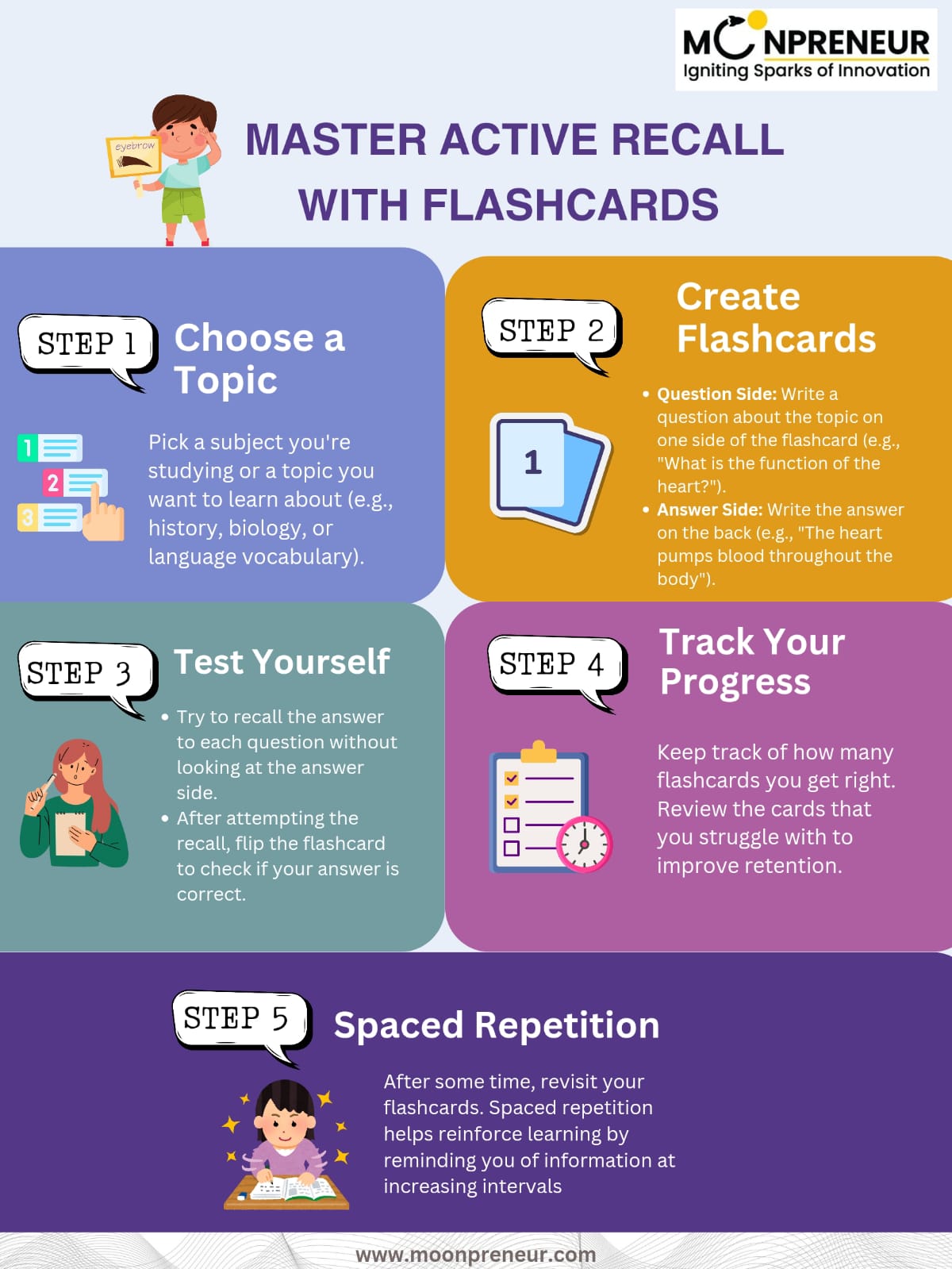Every Student Should Be Aware of These 10 Active Recall Methods.
Active recall is one of the most effective learning techniques in the world. Active recall pushes your brain to retrieve information, which helps enhance memory and increase long-term retention, in contrast to passive review techniques like rereading or highlighting.
Here are 10 effective active recall methods that every student should have in their arsenal if they are serious about studying smarter rather than harder.
1. Flashcards (physical or digital)
Make flashcards that have answers on one side and questions on the other. Tools like Anki or Quizlet maximize memory by using spaced repetition to assist you in reviewing right before you forget.
Ideal for remembering vocabulary, formulas, dates, and definitions.
2. Test Practice
Make your own test questions, utilize textbook quizzes, or old exam papers. Creating exam-like situations aids in identifying areas for improvement and boosting self-assurance.
Ideal for applying concepts and getting ready for tests.
3. The Feynman Method
Try explaining a subject in straightforward terms, as if you were talking to a child. This compels your mind to actively seek, clarify, and comprehend the idea.
Ideal for learning complex or theoretical topics.
4. Blurtin'
Recall everything you can about a subject from memory without consulting your notes. Next, compare your materials and look for gaps.
Ideal for remembering lengthy passages of text, such as those found in history or biology.
5. Lists of Questions and Answers
Transform your notes into a list of questions. Cover the answers and try to answer from memory to test yourself many times.
Ideal for well-organized subjects with obvious questions and answers.
6. Self-Made Quizzes
Use Google Forms or apps to make your own quizzes. Creating the questions yourself improves comprehension, and taking them later improves memory recall.
Ideal for self-assessment or group study.
7. Brain Dumps
Write down everything you can recall after reviewing a subject, then close your resources. This approach aids in strengthening the neural connections associated with recall.
Ideal for high-yield review courses.
8. Memory-Based Mind Mapping
Create a mind map of a subject without referencing your notes. Then return and add any lacking information. This visual approach aids in idea connection and weak spot identification.
Ideal for interrelated subjects and visual learners.
9. Systems for Spaced Repetition (SRS)
Combine active recall with time-based review. Anki and other applications that use this method automatically schedule reviews just before you are likely to forget anything, which improves the efficiency of learning.
Ideal for exam preparation and long-term retention.
10. Partner Up for Your Studies
Have a study partner quiz you or ask you to explain concepts aloud. Being questioned and teaching both enhance engagement and memory recall.
Ideal for active participation and accountability.
Concluding Remarks
Active recall changes how students study by moving them from passive reading to active interaction with the content. These ten strategies have been shown by science to enhance retention, comprehension, and academic performance, not simply be practical.
At SmartStudys, we advocate for smarter rather than harder learning. Begin implementing these techniques into your study routine, and you'll see that your sessions become more productive, concentrated, and gratifying.
🔍 Visit www. smartstudys. com for more study tricks, memory techniques, and learning advice.


Post a Comment
0Comments